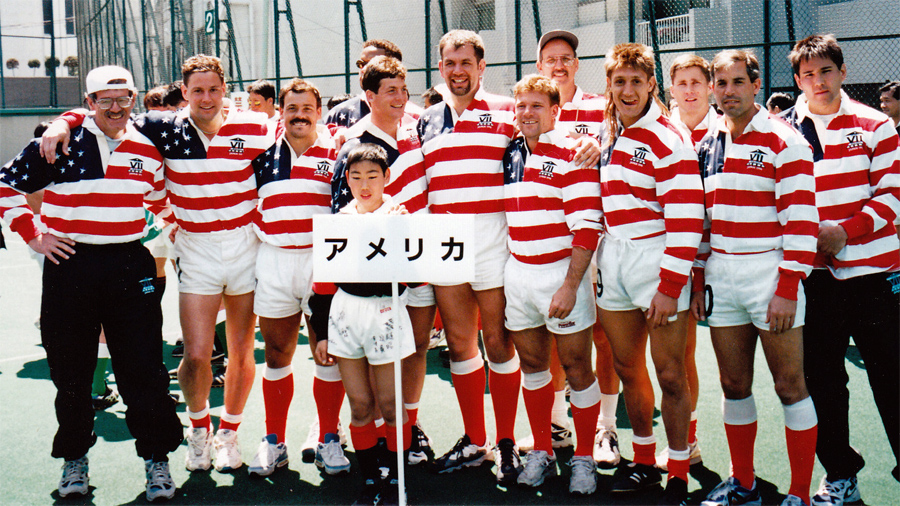April 13-14, 1996. Japan Sevens: Fiji
(Atlantis tournament #48)Emil Signes
April 22, 1996
JUNE 17, 2013 (rev. July 25, 2013)
home | Family Stories,
Pictures, etc | Family Trees
| Rugby Stories, Data,
Pictures, etc | Miscellaneous
Atlantis tournaments / return to Atlantis home
Atlantis tournaments / return to Atlantis home

Atlantis Stars & Stripes Jerseys in Tokyo
L to R: Emil Signes, John Flamish, Gabriel "Bull" Alonso, (hidden) Nick Bell, Dennis Peyroux, Adrian Scott, Tom Liddle,
Bob Davis, Bill Russell, David "Dixie" Dean, Kevin Gallant, Mike Coyner
Note of 2013: I couldn't find a Rugby
Magazine article on the tournament, but this file
is dated 4/22/96, so it was contemporary to
the event (and maybe published in Rugby
without me noticing). As noted in the article I made the
trip two days after a hernia
operation and still remember the painful
flight and losing my voice after trying to run
practices shouting from the sidelines. The
cherry blossoms were nice, though.